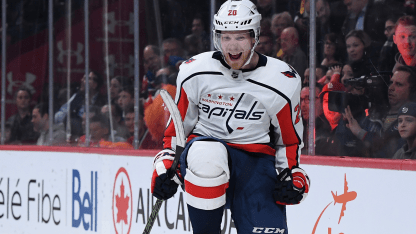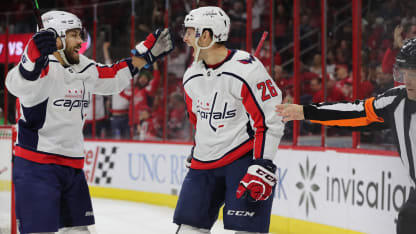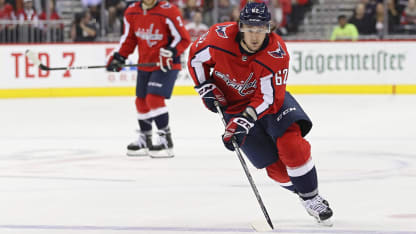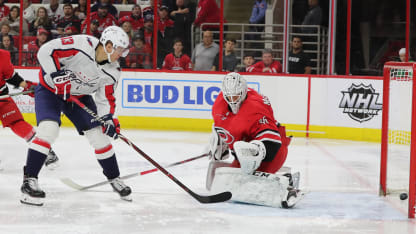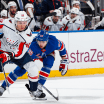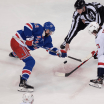While the Capitals stars delivered, a deeper look also finds plenty of secondary contributors and unsung heroes. Consider that in Washington's series-clinching win against Columbus in Round 1, Devante Smith-Pelly scored the eventual game-winner while Chandler Stephenson added a shorthanded insurance marker. Alex Chiasson's only goal of the playoffs game came in the Capitals' Game 6 win in Pittsburgh.
Andre Burakovsky scored twice in Game 7 of the East Final in Tampa Bay, while Smith-Pelly and Lars Eller scored the game-tying and game-winning goals as the Capitals erased a third-period deficit and won the Stanley Cup with a Game 5 triumph in Vegas.
Secondary scoring was among Washington's strengths last year and despite some inevitable player turnover, the Capitals know they'll need more of the same this spring.
"We can't expect our top guys to score every game and win every game for us," says Eller. "So, yeah, that's going to be crucial. History shows as well that it's going to be crucial to have depth [in the playoffs] and have contributions from all four lines."
Spreading the wealth was a common theme during the regular season as the Capitals had a League-high seven 20-goal scorers. While Ovechkin, T.J. Oshie, Evgeny Kuznetsov and Nicklas Backstrom are no strangers to the club, wingers Jakub Vrana (24 goals), Brett Connolly (22 goals) and Tom Wilson (22 goals) all established career-highs and hit 20+ for the first time. Lower down the depth chart, fourth-line center Nic Dowd also had career-highs across the board with 8 goals and 22 points.
"It's the difference between teams that make runs and those that go all the way," Dowd says of the secondary scorers.
"You can look at last year's team, they had contributions from the entire lineup and that makes a big difference. I think it takes a lot of pressure off the top guys. You end up winning games, 3-1, 4-1 or 5-1 instead of 1-0 or 2-1. It takes a little bit [of pressure] off your goaltender. You have to have guys contribute. The league has changed so much now and fourth-line players are different than they used to be and we're expected to contribute."
